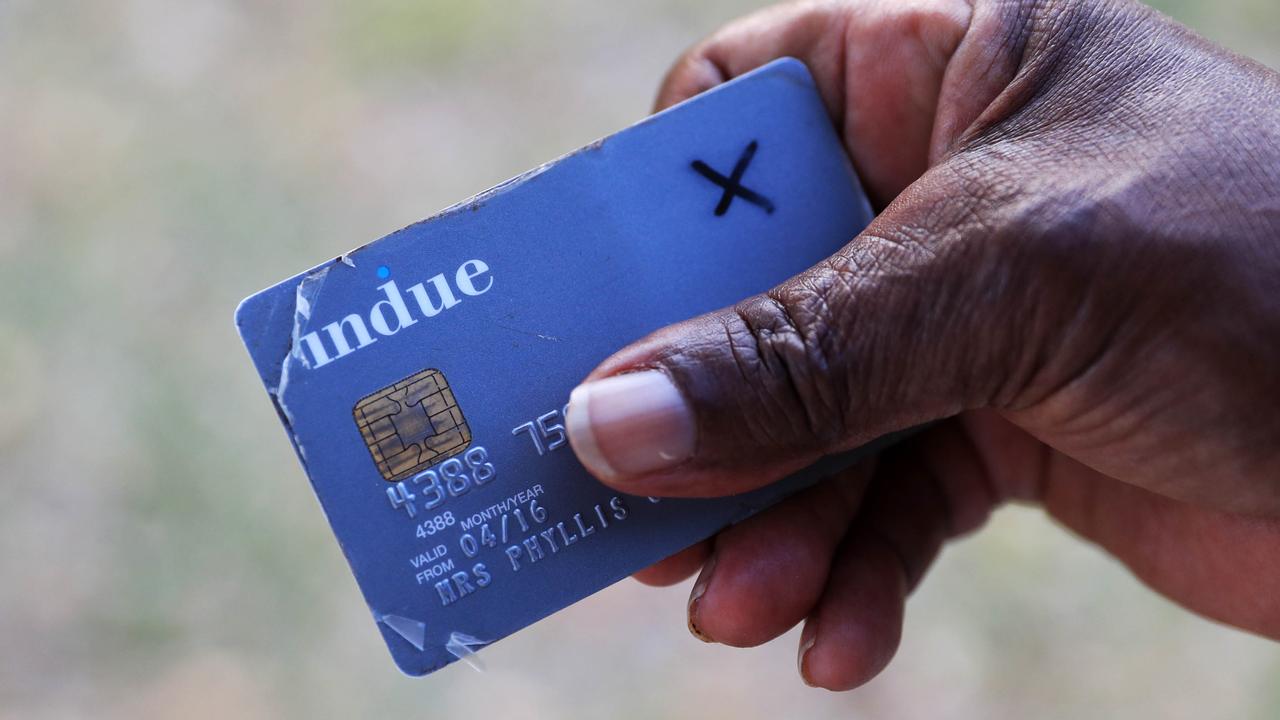Noel Pearson's hometown of Hopevale divided over grog bans
NOEL Pearson's home town of Hopevale is set to split over statutory alcohol limits.

NOEL Pearson's home town of Hopevale is set to split over statutory alcohol limits, as indigenous communities across Queensland get their say on the future of a program credited with curbing violence and putting more children into school.
Hopevale Mayor Greg McLean insists that a majority of the 850 residents favour easing the restrictions that allow drinkers a single carton of mid-strength beer or one 750ml bottle of table wine at a time, while banning spirits and fortified wine.
Elsewhere in Queensland, alcohol management plans ban alcohol outright in Aboriginal communities, backed by state law.
Mr McLean is on a collision course with Mr Pearson, the internationally recognised indigenous activist who was instrumental in setting up AMPs a decade ago. His spokesman confirmed yesterday that Mr Pearson would strongly oppose any move to pump more alcohol into the Cape York town.
Traditional elder Tim McGreen, a member of the Hopevale congress of clans, said he felt let down by the Queensland government's move to review the system when he had gone to the trouble to campaign for Premier Campbell Newman in the lead-up to the state election last March.
Today, he will attend the funeral of a young man, related to Mr McLean, who was struggling with an alcohol problem at the time he took his life. It was the second such tragedy in six months in Hopevale.
Disputing Mr McLean's claim of majority support for relaxing the community's AMP, Mr McGreen said: "It's only a handful who want it . . . the people who sit down and drink and smoke with him."
He hopes that Mr Newman can be persuaded to leave the AMPs as they stand in 19 largely remote indigenous settlements. "It's going to make it hard for me as a non-drinker, non-smoker if this goes ahead," said Mr McGreen, 49. "It won't make the community happier; it will make people sadder."
The mayors of two notionally dry peninsula communities, Pormpuraaw and Kowanyama, say they will apply to lift their zero alcohol limits.
Former ALP national president and GenerationOne social advocacy group boss Warren Mundine stepped up his criticism of the AMP review, announced on Wednesday, calling on Aboriginal leaders to speak with a "unified voice" against it.
But the architect of the Howard government's 2007 intervention in Northern Territory Aboriginal communities, Mal Brough, said blanket bans on grog were always going to be temporary.
Mr McLean said the "one carton" limit should stay in Hopevale, but people should be free to have full-strength beer or the equivalent in cans of pre-mixed spirit drinks. A car would not be allowed to carry more than two cartons of drink at a time, provided there were at least two adults in it.
"I don't think there's a person who will disagree with what we've put forward in Hopevale because it gives them back partly their human rights," Mr McLean said.
"And it gives dignity back to the individuals."
Pormpuraaw mayor Richard Tarpencha said AMPs constituted a form of racial discrimination and had caused marijuana abuse to spike on the peninsula.
He wants Pormpuraaw residents to be allowed to bring one carton of beer per car into the community.
"Non-indigenous Australians after work can get a carton and go back home and drink it, with their families, but the indigenous people can't do that," Mr Tarpencha complained.
Kowanyama mayor Rob Holness said AMPs had led to some positive changes. However, there should be a privately run, family-friendly licensed restaurant in the community.
"We're all Australians, we're all Queenslanders and we should be treated like everyone else," Mr Holness said.
"We don't want to go back to the old days when it's open slather, but we want to be able to make our own rules, have the AMP lifted and let each council run their community the way they want to."
Queensland Aboriginal and Torres Strait Islander Affairs Minister Glen Elmes has stressed indigenous community councils would need to demonstrate there would be no backsliding on violence or school attendance rates before alcohol restrictions were eased. He is in accord with federal Indigenous Affairs Minister Jenny Macklin that the rules cannot be changed at the expense of protecting women, children and the elderly. Mr Elmes said he wanted to strengthen penalties for sly grog running as part of the review into the AMP system.
A bottle of rum that retailed for $50 in Cairns would fetch up to $250 when smuggled into Aurukun, the 1200-strong community near the tip of the cape that had indicated that it would retain the existing prohibition.
On Mornington Island, also notionally dry, a home brew based on Vegemite had a potentially lethal 11 per cent alcohol content. Mr Elmes said an unintended consequence of AMPs had been to "open up" communities to contraband and dangerous home-made grog.
Mr McLean said Hopevale's AMP was not worth persevering with in its current form.
"The AMP worked for statistics, it's worked for the bureaucrats, it's worked for those who wanted to get funding for the problem, but it has not worked as a solution," he said.



